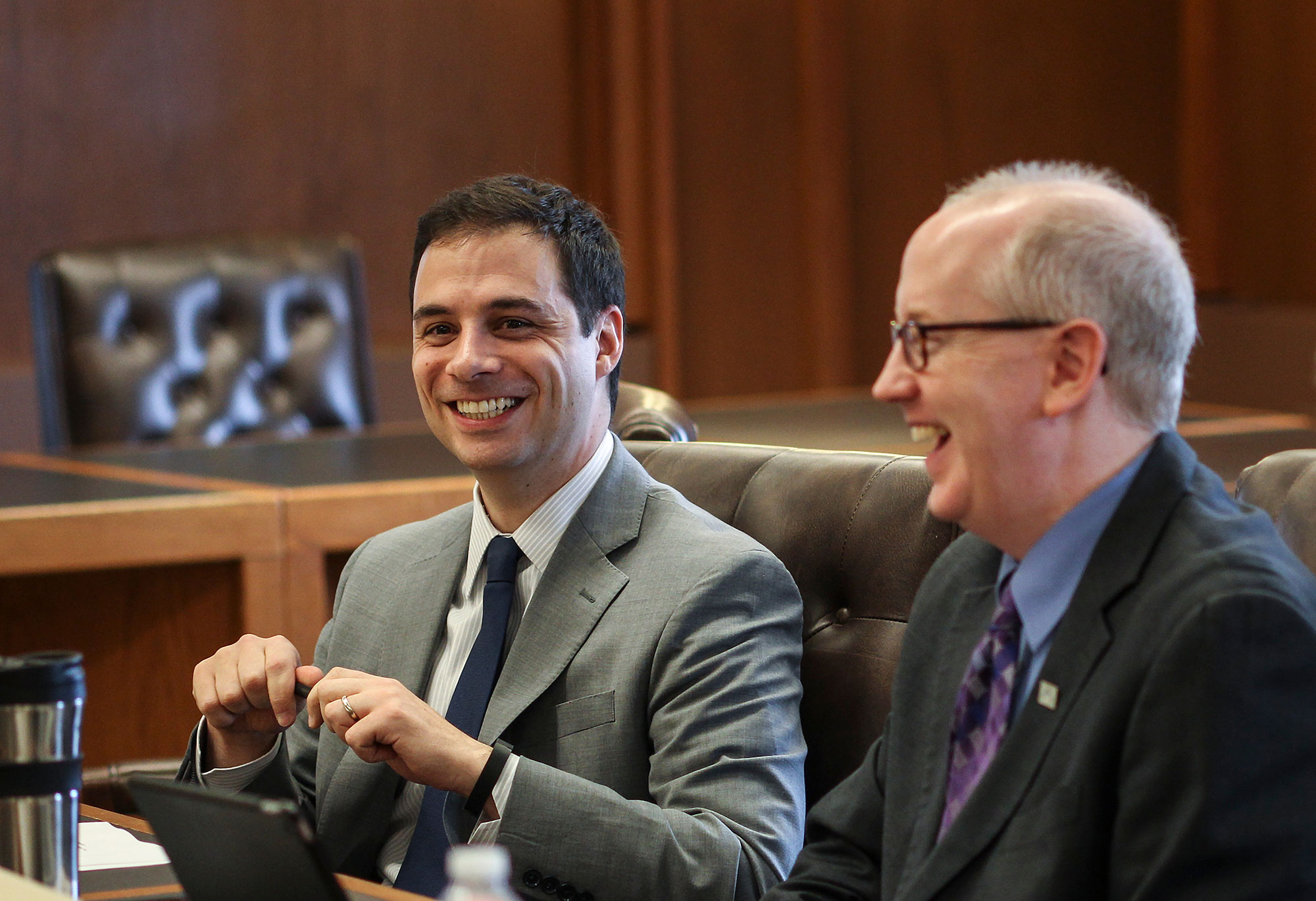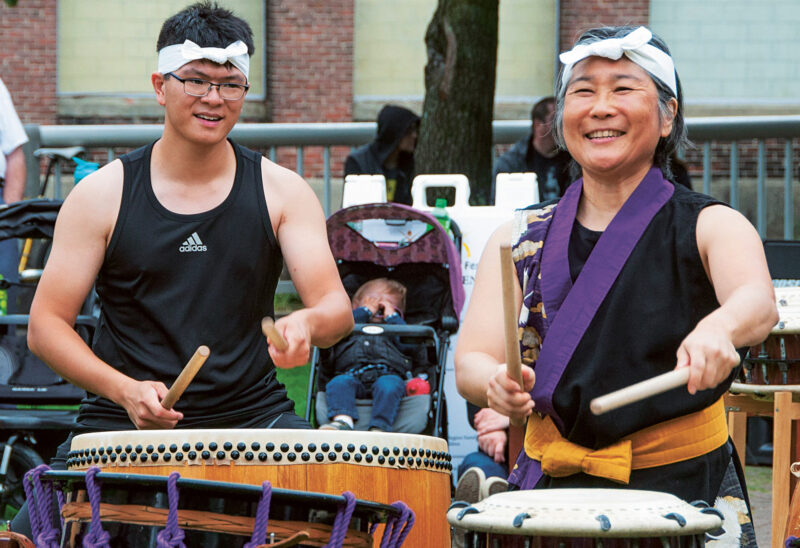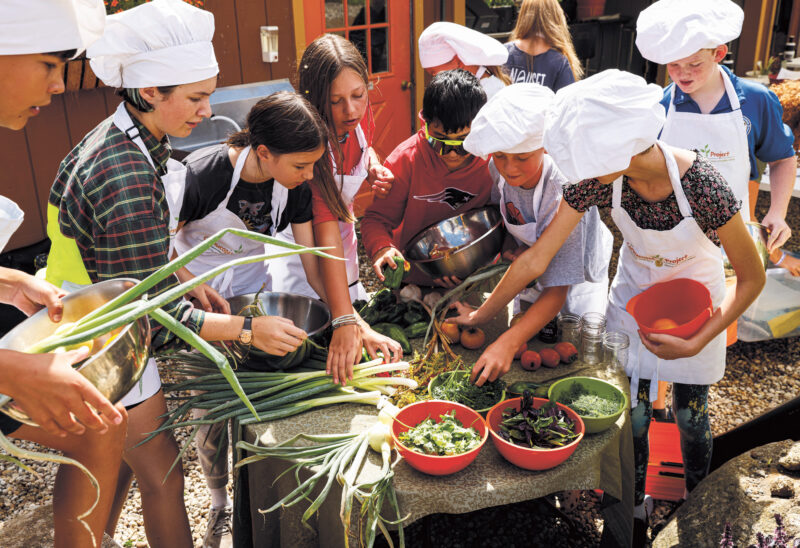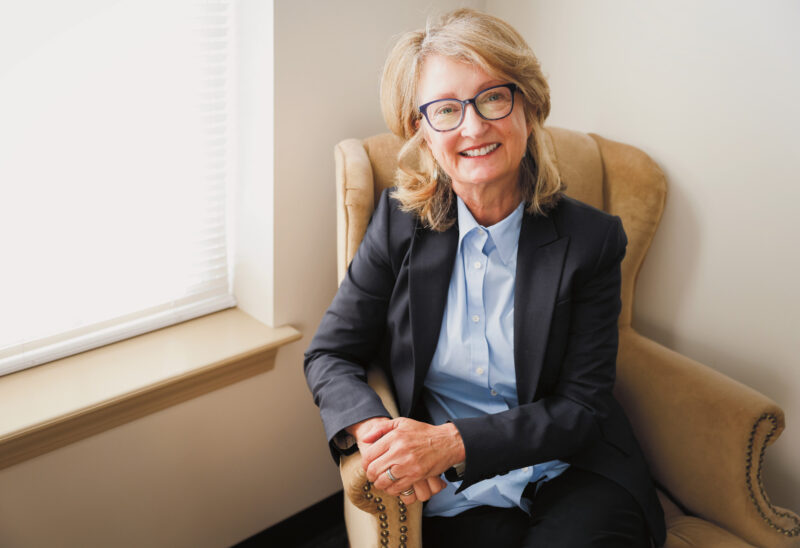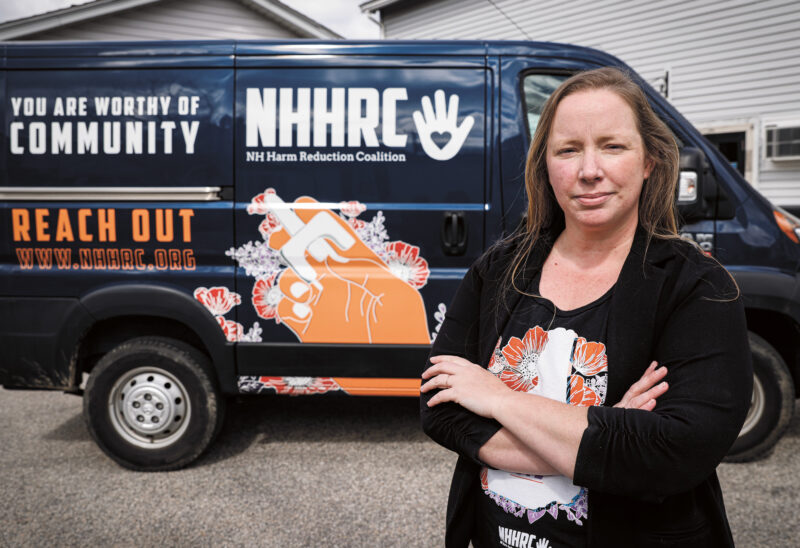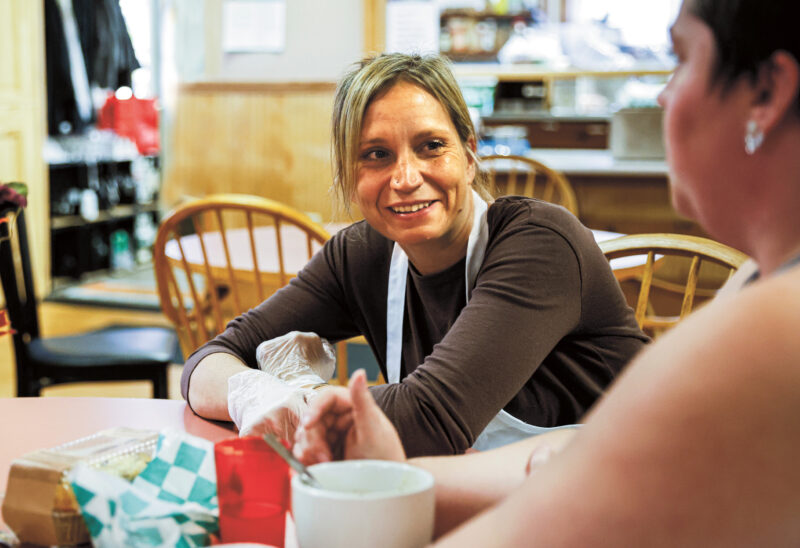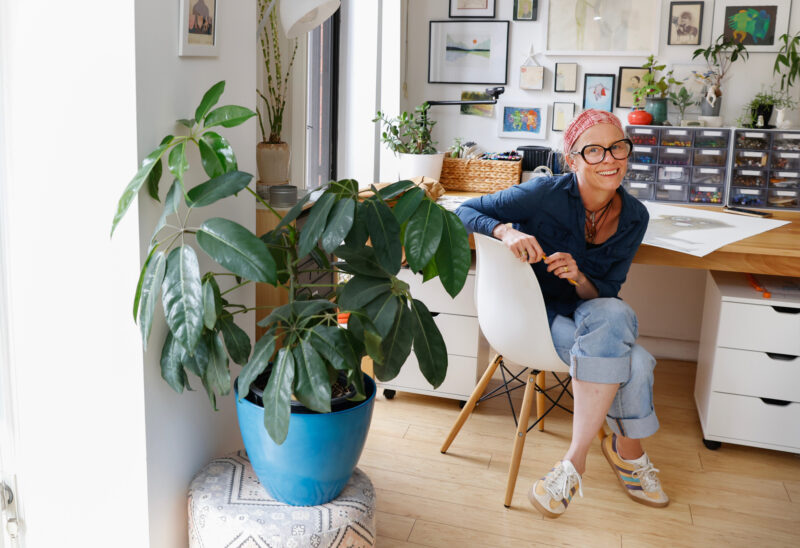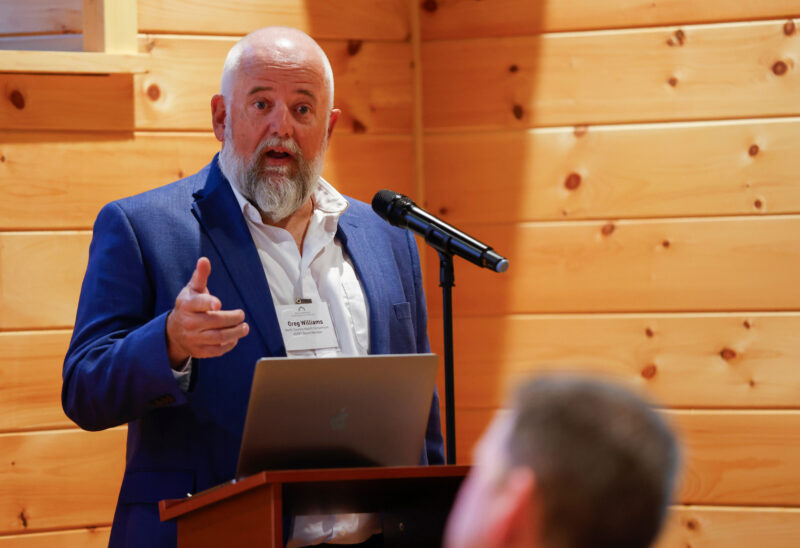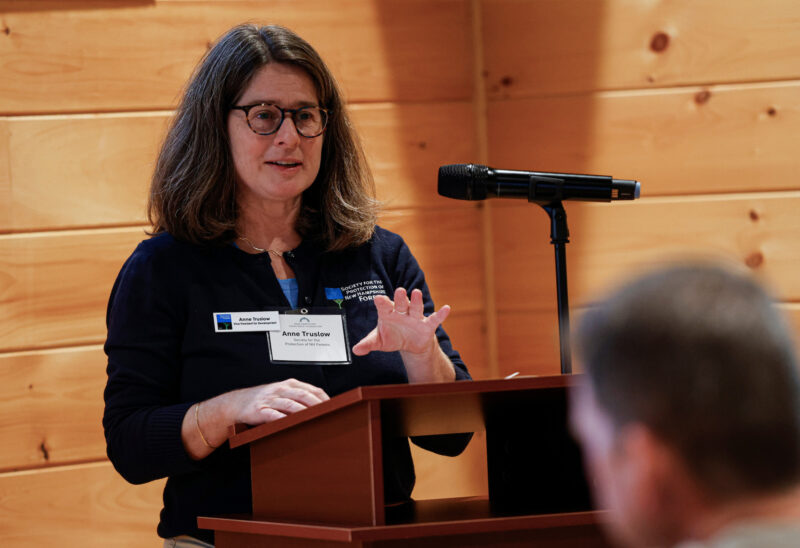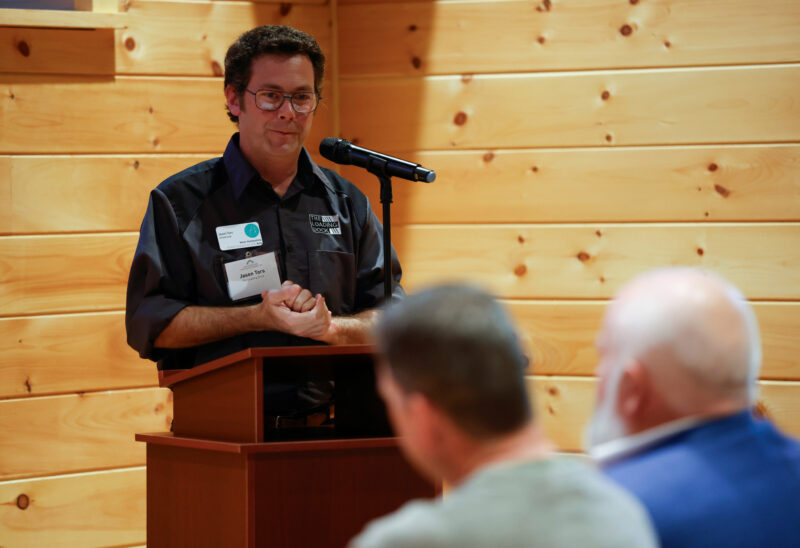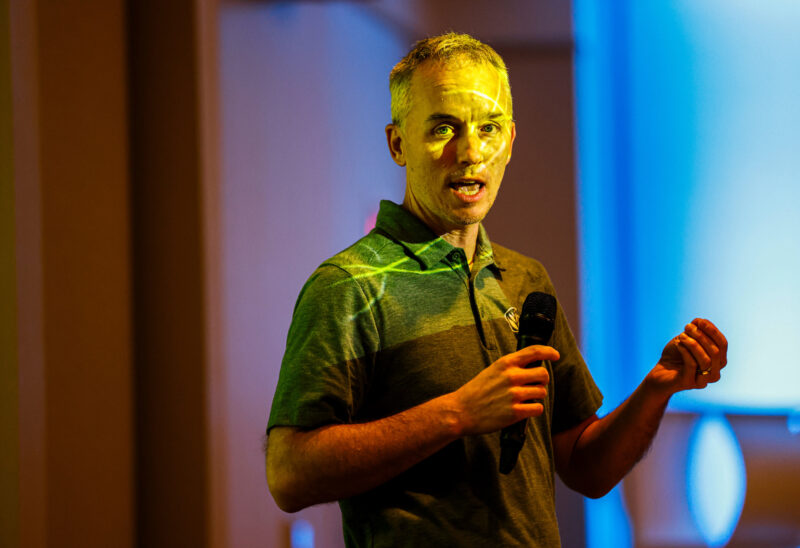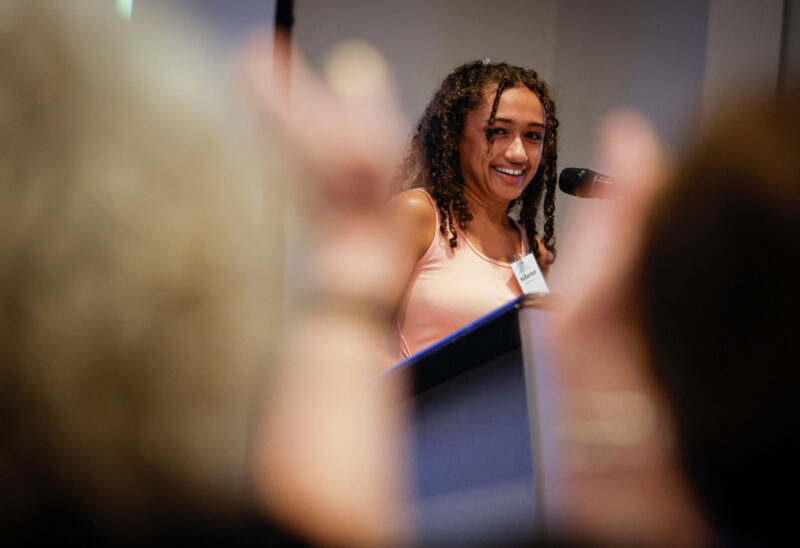The Caroline and Martin Gross Fellowship gives one public-sector leader each year the opportunity to attend a three-week “Senior Executives in State and Local Government” seminar at the John F. Kennedy School of Government at Harvard University. James Vara, chief of staff and associate attorney general at the NH Department of Justice and the 2018 Caroline and Martin Gross Fellow, reflects on the experience.
The Senior Executives in State and Local Government program at Harvard’s John F. Kennedy School of Government was the most profound professional and personal experience of my life.
The Caroline and Martin Gross Fellowship allowed me to spend three weeks learning from a diverse group of professors (who are now mentors) and being immersed in cooperative/collaborative learning with public servants from across the country and around the world. I met and learned from firefighters and police officers, city planners, legislators…the list goes on.
There were too many “a-ha” moments to even name, but this one comes back to me every day:
One of the professors – to prove a point – started down the Socratic Method path in his first lecture. It felt very similar to law school to me, that beating you down before building you back up again. I caught on to what he was doing. And I actually started to laugh.
And he stopped, and said: “You make a choice to be upset.” It really got people’s attention. There are so many times in a difficult, stressful work environment when that lesson is helpful. Where you can simply choose not to let something upset you – because truly, it is not personal – and make a decision to handle the situation accordingly. I have really internalized that, and I think I impart some of it to my team.
Part of what is wonderful about the program is that you are there without any of the people you know. And over the course of three weeks, you really connect with your fellow students – who come from so many different places and professions – and feel comfortable with them. I maintain wonderful relationships with many of those that I attended the program with. I had to go to Denver recently, and a friend from the program, who was the executive secretary for the Colorado Commission on Indian Affairs, came and picked me up at the airport and we had dinner together. And that is someone whom I would never have had the opportunity to learn from, and befriend, in any other circumstance in my life. I am grateful for that.
I connected with a legislator from Maine, and state trooper from Arizona, and a police officer from Orange County, and learned about what they and their communities are struggling with, and we worked together on how to address important issues from the contexts of the positions we are in. Folks from other parts of the world – city planners and people in water management from New Zealand, a police officer from the Australian outback – had serious and thought-provoking questions about the U.S. that gave us all the opportunity to reflect.
We worked in sub-groups to bring different perspectives to bear on community problems. My group was working with a gentleman from a North Dakota community that is one of the most expensive places to live in the country because of the oil boom there. The community has very little housing or infrastructure, and we worked together on strategies for building infrastructure for people who wanted to settle there.
The opportunity to work in state and/or local government can be demanding, but also deeply rewarding. We follow this path because it becomes part of us. Having been offered such an amazing opportunity to attend this program at Harvard, I feel it is also my responsibility to share with colleagues, family and community what I learned from the other participants, professors, and from my own reflection. I find this critical and I will continue to give back what I learned.
On a personal level, this opportunity gave me time for prolonged introspection. I went into the program open-minded, free to question, and without work responsibilities. I left asking myself, “who am I, where am I, and how am I?” While I do not know if I am able to answer any of those—maybe I shouldn’t—however, I do keep these questions at the forefront daily.
I would be remiss not to thank my family; former Gross Fellow Bud Fitch of the New Hampshire Secretary of State’s office, who recommended me for the program; and my coworkers at the New Hampshire Department of Justice, who made it possible for me to step away from my role there for three weeks. Most importantly, I want to warmly thank the New Hampshire Charitable Foundation and the donors to the Caroline and Martin Gross Fellowship program for offering this; I am forever grateful for this opportunity.

